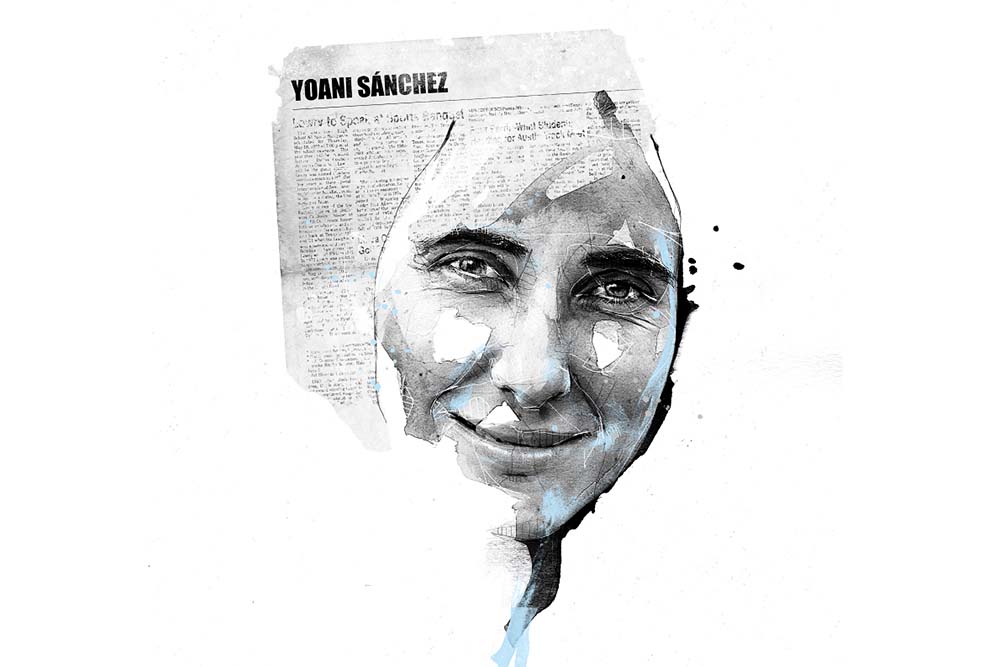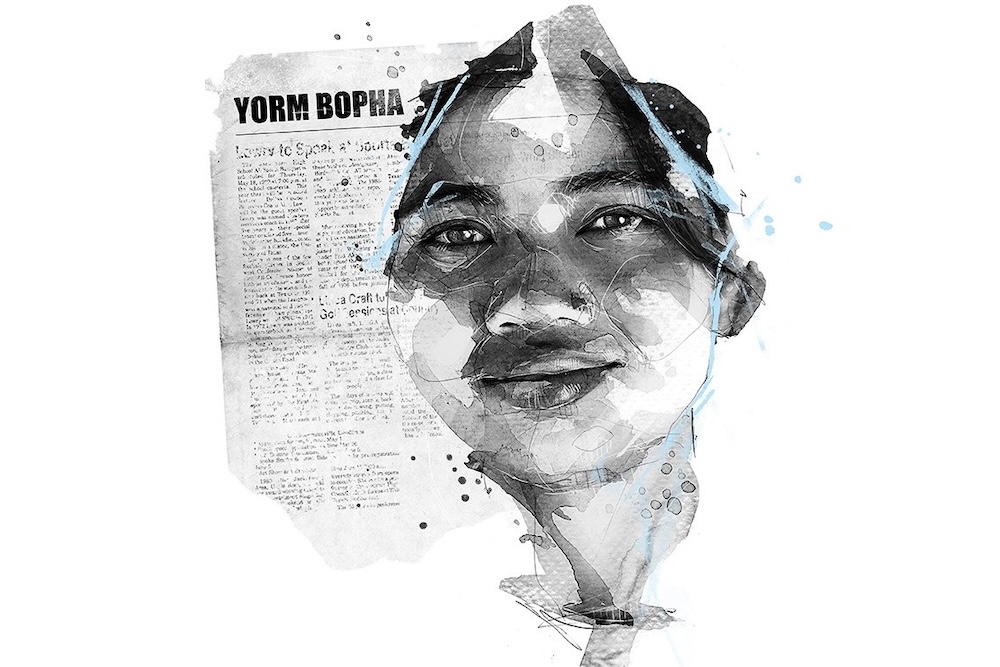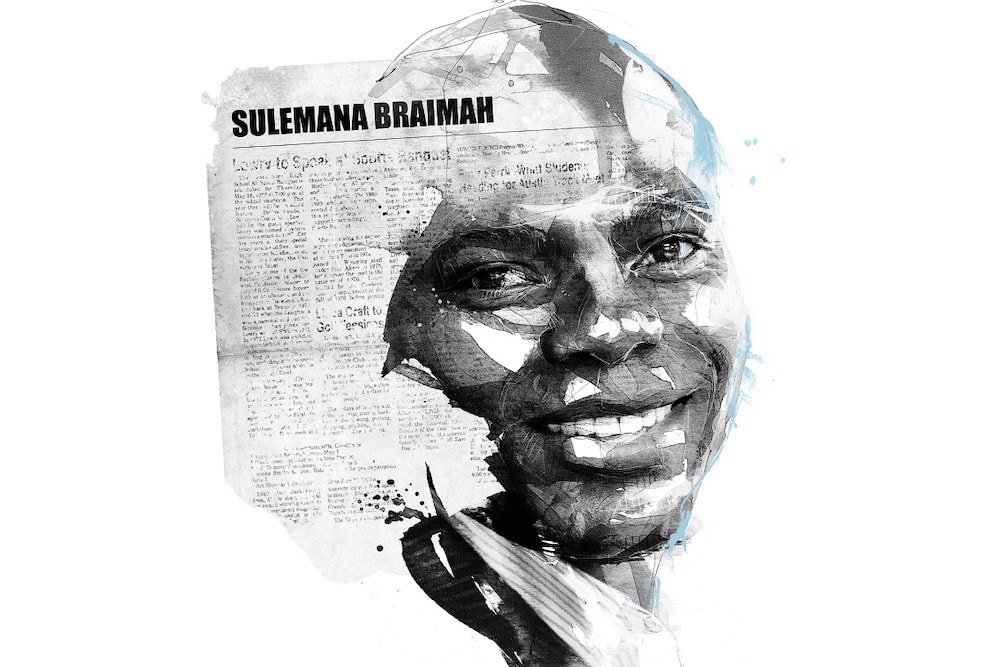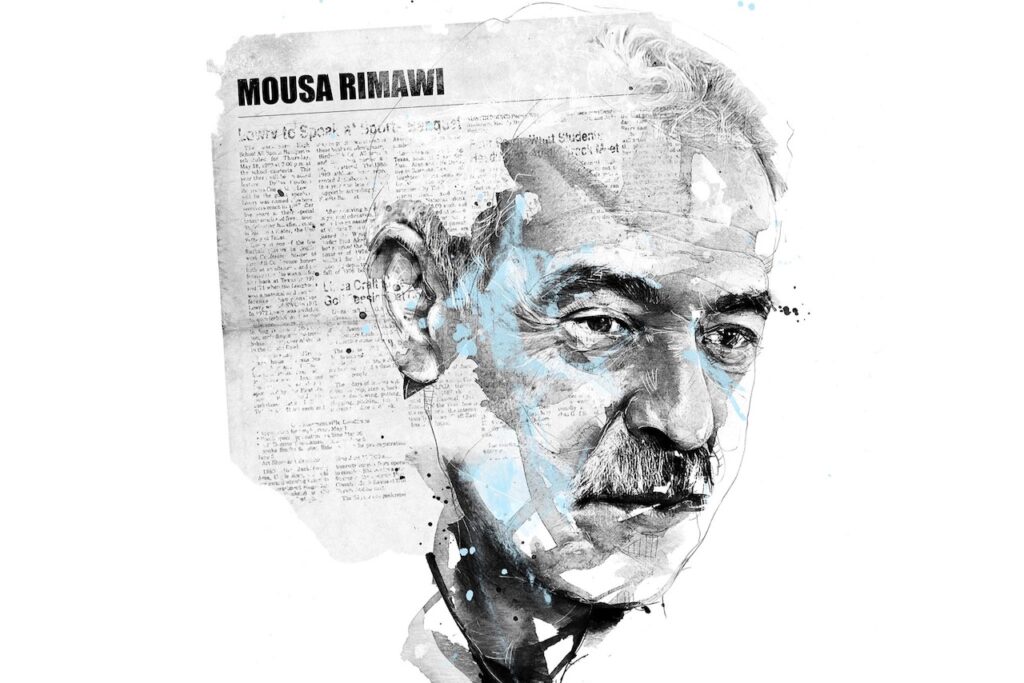As diplomatic relations between Cuba and the USA resume after 53 years, hopes are that restraints on courageous writers and journalists, like independent blogger Yoani Sánchez, will be eased.
After being accused of cyberterrorism on national TV in 2010, Yoani responded by telling her friends: If you are insulted by the mediocre, the opportunists, if you are slandered by the employees of the powerful but dying machinery, take it as a compliment.
For more than half a century, people in Cuba who dared to speak out found themselves imprisoned, attacked, harassed on the streets and in the media, and all too often forced into exile. As diplomatic relations between Cuba and the USA resumed after 53 years, hopes were that restraints on courageous writers and journalists, who have persisted in publishing their views, would be eased. Among them is Yoani Sánchez, Cuba’s most prominent, independent blogger.
A Philology graduate, Sánchez set up the magazine Consenso, a forum for reflection and debate, in 2004. Three years later, in 2007, she started her own blog, Generación Y. Her readership grew quickly, gaining over a million followers, among them world leaders; President Obama described her writing as “provid[ing] the world a unique window into the realities of daily life in Cuba”. Unsurprisingly, within a year, the blog was blocked by the authorities and can still only be accessed outside the country.
In 2014, Sánchez launched the 14ymedio digital news site that provides propaganda-free news. In an interview with Forbes in 2014, Sánchez described the daily challenges of running the site, from the harassment of her staff, to the fact that because it is blocked, Cuban readers have to access it via proxies or offline versions delivered on USBs and printouts. Even without the censorship, poor Internet connectivity on the island in general is a major challenge.
Ever since she started blogging, Sánchez has been under surveillance, been arrested and harassed, and been accused of being a counterrevolutionary and a cyber terrorist.
In 2009, she reported that as she and another blogger were returning from a peace rally, they were pulled off the street and forced into an unmarked vehicle, where unknown men beat them before releasing them onto the roadside. When they called for help to passers-by, they said that their captors shouted back not to take any notice, calling the bloggers counterrevolutionaries.
In 2012, Sánchez spent 30 hours in prison while she attempted to report on the trial of a Spanish activist accused of the death of a well-known dissident who was killed in a car crash. During the arrest, she had a tooth knocked out. In a defiant tweet on her release she said: “A little feminine vanity: don’t remember me without a tooth, remember me flying free on the blue bird of Twitter, complete!”
Like many of Cuba’s dissidents, Sánchez has struggled to get permission to travel overseas: she was refused a visa over 20 times in five years. However, in 2013 she was able to leave on an 80-day tour of Europe, Latin America and the USA to take part in conferences and events. But even abroad, pro-Castro demonstrators hounded her. In Brazil her presentation had to be cancelled when protestors disrupted the event, denouncing her as a CIA agent and accusing her Generación Y blog of spreading anti-Cuba propaganda. She faced similar protests in New York and other points in her trip.
Her work has earned Sánchez international acclaim. TIME magazine included her on its list of the 100 Most Influential People in 2008, and named her blog among the top 25 blogs in 2009. Amongst other awards she has received, in 2010 she was named an International Press Institute World Press Freedom Hero.
Despite censorship and blocking of her sites, Sánchez continues to write and publish blog posts on 14ymedio and Generación Y, many of which are republished by the Huffington Post.
With her constant push for greater respect for rights and liberties in Cuba, she has led a movement that includes several new media sources that are defying the regime’s censorship.
Sánchez has continued to report that, despite the so-called “opening” of the Cuban government and its rapprochement with the United States, there really have been no significant changes.
In 2021, she wrote about the growing protests in the country, the San Isidro movement, and the failed attempts by the Cuban authorities to control the internet. In March 2024, she reported on widespread protests in Santiago de Cuba and other cities, highlighting the population’s frustration with the regime’s incompetence in providing basic needs. She also continues to share insights through her YouTube channel and podcast Cafecito informativo, where she discusses current events and provides a platform for independent journalism, despite constant harassment and censorship.
Illustration by Florian Nicolle




